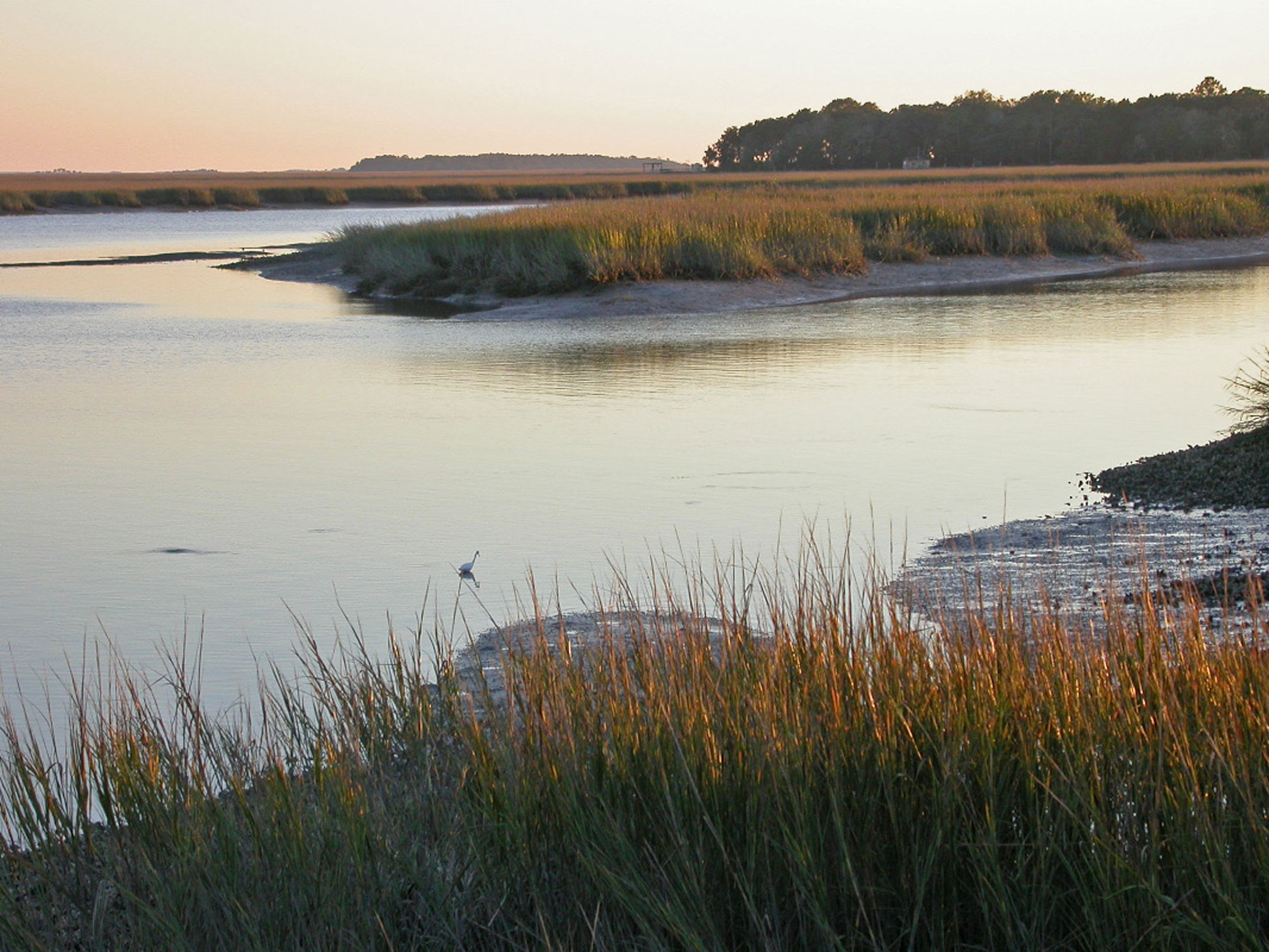Athens, Ga. – A consortium of universities headed by the University of Georgia will continue ecological field research on the marshes and estuaries of the Georgia coast following the renewal of a six-year, $5.8 million grant from the National Science Foundation. The award will help scientists understand how these ecosystems function, track changes over time and predict how they might be affected by future variations in climate and human activities.
“Discerning long-term trends in natural systems requires careful scientific analysis over the course of many years,” said Merryl Alber, Georgia Coastal Ecosystems Long-Term Ecological Research project manager and professor of marine sciences at UGA.
The NSF award extends the research project, which began in 2000. The research is conducted out of the UGA Marine Institute on Sapelo Island, and builds on the institute’s rich tradition of ground-breaking ecological research.
GCE scientists are studying the long-term effects of climate change, sea level rise and human alterations of the landscape on the unique ecosystems found in the estuaries, sounds and marshes surrounding Sapelo Island in McIntosh County.
“The citizens of Georgia receive many benefits from coastal ecosystems,” said Alber. “Understanding the health of these systems is not just interesting from a scientific point of view, but also of practical importance.”
This latest renewal of the Georgia coastal ecosystems project will provide support through 2018. In that time, more than 30 UGA researchers, along with partners from more than a dozen other academic institutions and agencies, will continue to accumulate and analyze data relating to plant and animal populations, water chemistry, carbon cycling and many other important environmental indicators.
“This wealth of information will help us better understand any future changes in these ecosystems,” said Alber.
There are cycles in nature that take significant investment of time to fully understand, and the traditional two or three-year scientific grant is not always sufficient, explained Alber. It is a rare opportunity for researchers to examine this site over such an extended period, she said.
“We already have 12 years of data, so when people wonder if new events or new patterns are out of the ordinary, we can answer those questions,” she said. “The only way to put new events in perspective is to have long-term data.”
In addition to research, members of the project are also involved in a number of education and outreach initiatives. Graduate students from UGA and other universities conduct fieldwork at the site, and many have published dissertations and scientific papers based on their research. The program also sponsors research opportunities for undergraduate students.
In partnership with the UGA Marine Extension Service, the project runs a schoolyard program designed to train K-12 educators in field ecology and hands-on research activities that can be used in the classroom.
“We want the information we uncover as part of our research to be available to a broad audience, including students, land managers and the general public,” Alber said.
The project is one of 25 NSF-funded long-term ecological research sites where scientists document and analyze environmental change over long periods of time.
Georgia Coastal Ecosystems Long Term Ecological Research Project
The Georgia Coastal Ecosystems Long Term Ecological Research Project site was established by the National Science Foundation in 2000. The study domain encompasses three adjacent sounds on the coast of Georgia, and includes upland, intertidal and submerged habitats. The GCE field site is based at the University of Georgia Marine Institute on Sapelo Island, and the program is administered by the UGA Department of Marine Sciences in Athens, Georgia. More than 60 participants, representing 14 academic institutions and agencies, are currently involved in GCE research and educational programs. For more information, see http://gce-lter.marsci.uga.edu.
The University of Georgia Department of Marine Sciences
The University of Georgia Department of Marine Sciences, in the Franklin College of Arts and Sciences, has 17 full-time faculty engaged in teaching and research at the graduate and undergraduate levels. It is an interdisciplinary department of biological, chemical and physical oceanography, with special emphasis on coastal and estuarine processes. For more information, see http://alpha.marsci.uga.edu/.


